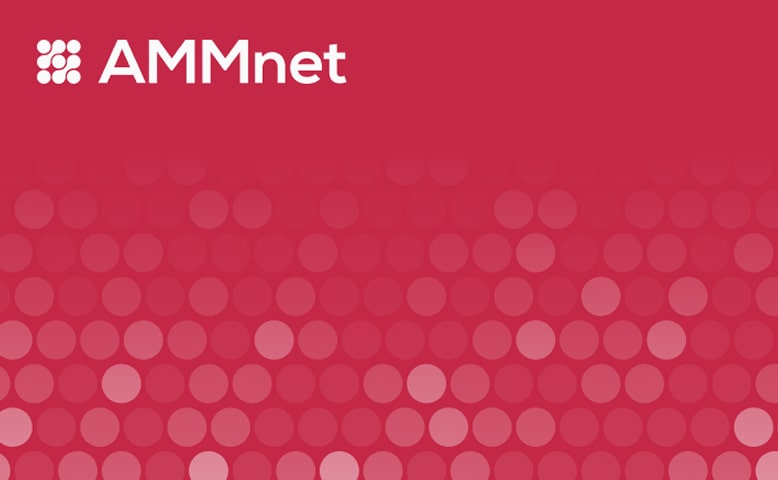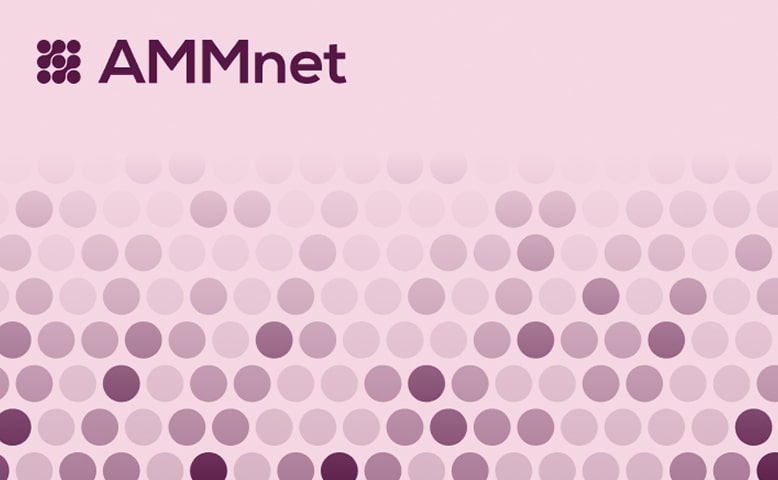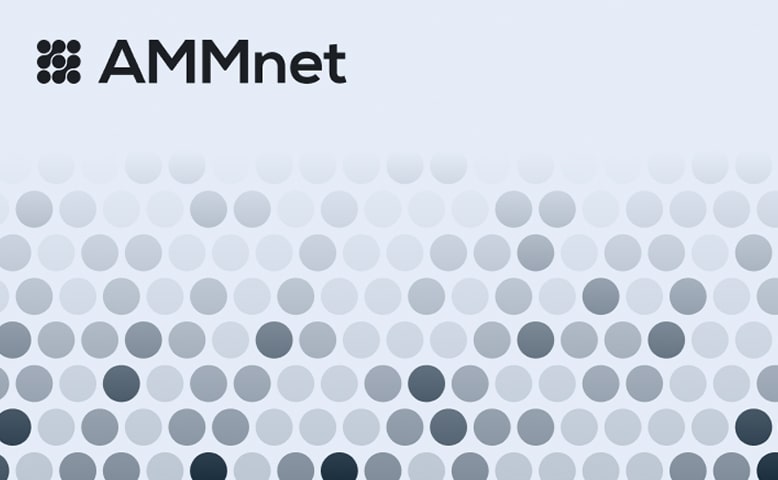Welcome to the May newsletter! We are really excited to announce our new large event award, June hackathon, and updated guidance for establishing local chapters of AMMnet. Read more below!
Please contact info@ammnet.org if you would like to contribute any items to next month’s newsletter!
Contents:
- Special announcements
- Jobs and grant opportunities
- Workshops and conferences
- Courses and learning opportunities
- Subgroups, working groups, and regional activities
- Seminar recap and recordings
1. Special announcements
AMMnet Monthly Seminar on June 4, 15:00 UTC | AMMnet Kigali Meeting Recap and Discussion
Join the Zoom meeting at the link here.
Join us on June 4th to hear about exciting work from:
- Gloria Shirima, Ifakara Health Institute
- William Wasswa, Mbarara University of Science and Technology
- Neil Hobbs, Swiss TPH
New AMMnet Funding Opportunity for Large Local Events
The Applied Malaria Modeling Network (AMMnet) would like to offer AMMnet members the opportunity to hold large events with a training or educational purpose consistent with AMMnet’s mission.
The types of activities that can be supported by this award include, but are not limited to:
- Implementation of a short course, summer school, or multiple workshops
- Development of training materials and curriculum
- Delivery of trainings related to malaria modeling and/or analytics
- Organization of an annual meeting of multiple chapters, as long as a training component is included
- Other activities with a strong educational or training focus that support AMMnet’s mission of exchanging knowledge to improve support offered to malaria programs and advance general malaria research.
This award has a budget range of up to $40,000, which must be expended within 18 months of the awarded date. Up to 10% additional facilities and administration fees may be added according to the policies of the awarded institution, for a total award of up to $44,000.
You may find more details and proposal requirements on the AMMnet website at the link here.
Policy for Establishing Local Chapters
If you are interested or have begun to establish a local AMMnet chapter, you will find Establishment Guidelines, Bylaws guidance and template, and Terms of Reference on your website at the Local Chapters link here.
If you have any questions, considerations or suggestions for establishing local AMMnet chapters, please send us an email at info@ammnet.org.
June Hackathon Series
Look for an email with more details to come soon!
A new virtual hackathon series for continual learning was developed by a collaborative effort between the Best Practices and Learning Committees. Experts will work with the Hackathon task force for a half a day to consider the problems submitted and draft solutions. Once solutions are ready for a hackathon audience, experts will present at a training session (2 hour-session) After the training session, experts will spend about an hour summarizing the session, adapting solutions, and uploading them to the shared space.
Aims:
- To create a continual support space that anyone can access
- To learn how to code and how to code better
- To upskill people from a distance, ultimately improving all our abilities in:
- data handling, presentation and analysis
- experimental design
- quantitative understanding
- coding and problem solving
- transmission modelling
- To collaborate better and more equitably
Make an Impact and Contribute to the Direction of AMMnet: Board membership opportunity opening toward the end of 2024
Would you like to hold a leadership role and work with members of the AMMnet Board to set the long-term strategy, oversee the committees and ensure the future and sustainability of the organization? If you have participated in AMMnet’s committees, you are eligible to run for a Board member position!
You may find more information regarding the Board membership role and expectations in the Terms of Reference at the link here. Information on AMMnet’s committees is available here.
Look for emails in the coming weeks announcing opportunities to join committees and a call for nominations for Board membership.
Congratulations to the latest recipients of the AMMnet Small Event Award!
- Kenya: Interactive forum between AMMnet Kenya chapter and the Kenya National Malaria Control Program
Mayeku Philip Wafula, Kenya Institute of Primate Research - Brazil: Artificial Intelligence for Malaria Modelling in Brazil and Latin America & Inauguration of AMMnet Local Chapter in Brazil
Olawale Awe, SaLLy – Statistical Learning Laboratory Federal University of Bahia - Benin: Strengthening collaboration between NMCP, AMMnet Benin Chapter, and researchers for effective and sustainable malaria control in Benin
Keller Alphonse Konkon, Centre de Recherche Entomologique de Cotonou - Togo: Promoting AMMnet in Togo and encouraging malaria control actors to use models
Kokou Soklou, Clinique BIASA
Join the AMMnet Slack Workspace
If you haven’t joined the AMMnet slack workspace, join here! Many announcements, including job opportunities and upcoming events, are posted first on the Slack. This is also a great place to connect directly with other modelers!
2. Jobs and grant opportunities
Telethon Kids is looking for Senior Research Officers/Postdocs and Research assistants
Exciting new roles available for Senior Research Officers/Postdocs and Research assistants within the Intervention & Infectious Disease Modelling group at Telethon Kids Institute/University of Western Australia, with AMMnet members, Josephine Malinga and Melissa Penny and team.
The roles will develop & apply models for evaluating malaria interventions, in particular malaria vaccines, monoclonal antibodies, & long-acting injectables. The roles involve collaboration with several global health partners.
Apply at the links below or share with your networks:
Senior Research Officers/Postdocs
Research assistant
Postdoctoral Researcher Position Available at the University of Maryland School of Medicine
University of Maryland School of Medicine is seeking to hire a full-time Postdoctoral researcher to lead and contribute to multiple research projects relating to climate and infectious diseases at the University of Maryland School of Medicine.
The Malaria Research Lab in the Center for Vaccine Development is seeking a qualified Postdoctoral Fellow to work on research investigating the impact of climate change on vector-borne diseases, resilience against climate change in the context of infectious diseases, and the long-term impact of exposure to infectious diseases. Funding is available for up to three years with a start date starting in Summer of 2024.
The ideal candidate would possess skills in advanced statistical modeling, working with multi-dimensional datasets, project management, and expertise in either infectious diseases, spatial modeling, or climate science. We are looking for someone with an interest in climate and health and a willingness to work in the field in diverse international research settings. This position would provide opportunities to learn novel statistical methods, climate science, and gain experience working in international public health research in the field.
The Center for Vaccine Development is a collaborative, multidisciplinary research environment engaged in infectious disease research. Research work in everything from basic laboratory research through vaccine development, pre-clinical and clinical evaluation, large-scale pre-licensure field studies, and post-licensure assessments. Training is a critical component of our work to ensure the foundation for the next generation of scientists and researchers committed to global health initiatives.
AMMnet Funding Opportunity for Small Local Events
AMMnet would like to encourage the growth of local chapters and is looking to support small local in-person events such as meetings, conferences, or workshops.
In 2023, we funded 18 AMMnet events in 12 countries! An awardee list is available here.
You may find guidelines and requirements for submission on the AMMnet website at the link here.
We especially encourage our francophone and lusophone members to apply, and we accept applications in English, French, or Portuguese.
Please do not hesitate to reach out to info@ammnet.org with any questions. We look forward to receiving your application!
3. Workshops and conferences
2024 Genomic Epidemiology of Malaria conference
The 2024 Genomic Epidemiology of Malaria conference, taking place on 18-20 September, is an excellent opportunity to share your research findings on the epidemiology of malaria. We welcome insights showcasing the clinical and biological consequences of genome variation in malaria-exposed populations.
Demonstrate to a global community of scientists, working across human, parasite, and mosquito genetics, how new knowledge and improvements in data standards, can be used to treat and control malaria.
This is also a forum to influence policymakers, through active discussion on how new biological insights can support the formation of effective public health messaging and solutions.
Discussions and presentations will focus on:
- Spatiotemporal genomic epidemiology of parasites and vectors;
- Drug, diagnostic and insecticide resistance;
- Genomic studies of species interactions;
- Vector and parasites: neglected and emerging species;
- Harmonising data standards and analysis resources for public health (panel discussion);
- What next? Priorities for genomic epidemiology of malaria (panel discussion).
To be considered for a poster or short talk, register your in-person place by 4 June 2024 and submit an abstract.
Deadlines
- Bursary deadline, 04 June 2024
- Abstract deadline, 04 June 2024
- In-person registration, 13 August 2024
- Virtual registration, 10 September 2024
MESA Correspondence at MiM 2024
During the conference, the MESA Correspondents attended and meticulously summarized over 60 selected presentations and discussions. Their diligent efforts have resulted in a comprehensive report covering the latest advances in malaria research, including sessions on malaria vaccines, Anopheles stephensi, triple artemisinin-based combination therapies for multidrug-resistant malaria, and pfhrp2/3 gene deletions, among others. This extensive coverage ensures that those who could not attend the conference or missed some overlapping sessions have access to the crucial information presented.
MESA extends its heartfelt appreciation to the correspondents for their enthusiastic participation and hardwork. Additionally, MESA is grateful to the editorial mentors for their guidance, which enhanced the quality of the reports.
The complete series of the MESA Correspondents’ report is now published here.
4. Courses and learning opportunities
JHU Center for Accelerating Modeling Utilization and Synthesis Announces Free Online Course
The Johns Hopkins University Center for Accelerating Modeling Utilization and Synthesis (CAMUS), a CDC funded center of excellence, has released a free online course titled Infectious Disease Modeling in Practice. This course provides an in depth overview of the practical uses of mathematical modeling for a range of diseases and scenarios. In each module we focus on a use case for models: evaluating potential control strategies, quantifying and comparing the transmission rate of infections, and for forecasting future disease burden. Learners will get the most out of this course if they are familiar with the basics of infectious disease epidemiology and some university level mathematics background.
Enroll for free on Coursera: https://www.coursera.org/learn/infectious-disease-modeling-in-practice.
5. Subgroups, working groups, and regional activities
Seeking Modellers to Support the Creation of an AI Tool for Science Communication
Corona Management Systems and Bill and Melinda Gates are embarking on an ambitious project aimed at revolutionising science communication in Sub-Saharan Africa, particularly in the realm of public health. Our region faces numerous health challenges, and understanding and addressing them requires accessible, digestible research insights that can inform decision-making at all levels. To tackle this, we’re harnessing the power of artificial intelligence to develop an innovative tool called “sauki.ai.”
Sauki, meaning “simple” in the Hausa language spoken by millions across Africa, embodies our mission to simplify complex modelling and science communication. Through this tool, we aim to generate tailored briefs from modelling studies for various stakeholders, from donors and decision-makers to academia and the general public.
As part of our endeavour, we are seeking support from modelling communities to train the tool using a diverse range of modelling studies, including both published and unpublished literature. Our ultimate goal is to empower modellers to input raw data into the tool, which will then generate comprehensive summaries and visuals, making research-based science information more accessible and impactful.
To achieve this vision, we’re reaching out to the modellers in the AMMNet community to share their unpublished grey literature with us. Rest assured, any contributions will be treated with utmost confidentiality, and we are more than willing to provide non-disclosure agreements outlining the use of your work.
Your support will be invaluable in shaping the future of modelling communication for public health decision-making in Africa. We eagerly anticipate the opportunity to collaborate with you on this transformative initiative. Please do not hesitate to reach out to us (sauki.ai@coronams.com) to share your work or discuss further details. Thank you for considering joining us on this journey.
6. Seminar recap and recordings
AMMnet Seminar Series: 2024 May 7 AMMnet Kigali Meeting Recap and Discussion
Vusi Magagula hosted this special seminar where we discussed the highlights at the AMMnet Kigali meeting and gathered your input during small breakout discussion groups.
You may find a recording of the seminar here along with recordings from other past special events and seminars.
AMMnet Kigali Meeting website with recordings and presentation summaries coming soon!




